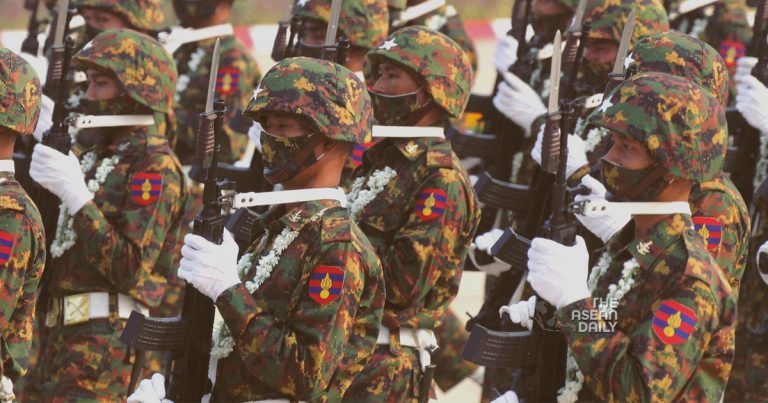14-2-2024 (YANGON) Yangon, the largest city in Myanmar, has largely been spared from the intense armed conflict between the Myanmar military and resistance forces that erupted following the 2021 coup. However, the lives of young people in the city may become even more precarious as the junta recently announced the enforcement of national conscription on February 10.
Under this new law, all men aged 18 to 35 and women aged 18 to 27 will be required to serve in the military. Even those with specialized expertise may be conscripted, regardless of age. Individuals who evade conscription could face imprisonment for three to five years. Detailed information on how conscription will be carried out has not been made available.
“I am afraid,” expressed Ms Su, a 26-year-old private school teacher, who chose not to disclose her full name for security reasons. “I could be arrested and forced to serve in the military. I try to avoid staying out late and traveling, but it’s not always possible because I have to work late. I want to leave the country by any means.”
While forced recruitment has been practiced by certain ethnic armed groups that have previously clashed with the Myanmar military, this is the first time the junta, known as the State Administration Council (SAC), has activated the conscription law enacted in 2010.
Junta spokesman Zaw Min Tun justified the decision by stating that it is every citizen’s duty to unite against what the regime considers terrorists. However, analysts believe that the move was prompted by the military’s significant losses in the northern part of the country since a surprise offensive by resistance forces in October 2023.
“The military is in desperate need of new recruits due to substantial losses, defections, and desertions over the past three years,” explained Mr. Min Zin, executive director of the Institute for Strategy and Policy – Myanmar. “At its peak, it had 200,000 troops, but now it has dwindled to 75,000.”
Young people in Yangon have responded to the announcement with a mix of defiance, ridicule, anxiety, and disillusionment. Mr. Paing, a 29-year-old entrepreneur, expressed uncertainty about his future and whether he should continue living in Myanmar or pursue further education abroad. He questioned whether he should join the revolution forces in response to the conscription.
“I am worried about the impact it will have on my parents if I run away. I am lost, unhappy, and depressed. If I receive a conscription letter at my house, I would either flee or join the revolution forces,” he added, using the term adopted by anti-coup groups for the resistance.
Mr. Zaw, a 32-year-old dentist, also stated that he would consider taking up arms against the junta if conscripted.
Amara Thiha, a researcher at the Peace Research Institute Oslo, believes that random conscription is unlikely to occur in the near future. He suggests that the regime is establishing a legal framework to incorporate existing pro-junta militia into the formal forces. This could lead to the proliferation of weapons in the region.
Analysts predict that the conscription will disproportionately affect poorer and rural citizens who lack the means to buy their way out of service. While forced recruitment by the junta may prompt some young people to join the armed resistance, it is more likely to fuel migration out of the country.
“Ordinary people need to survive and provide for their families. The best option for them is to find employment in Thailand,” said Mr. Min Zin. “The most probable spillover effect is massive migration. Since the SAC controls the airports, people have no choice but to resort to illegal migration.”




